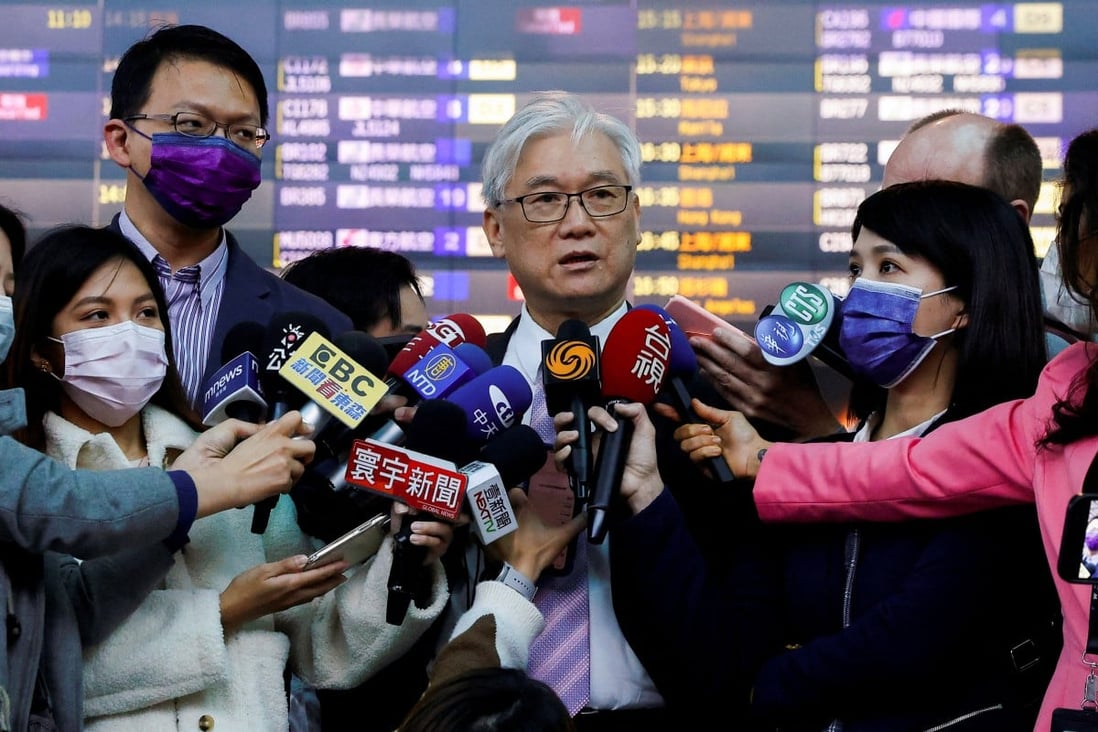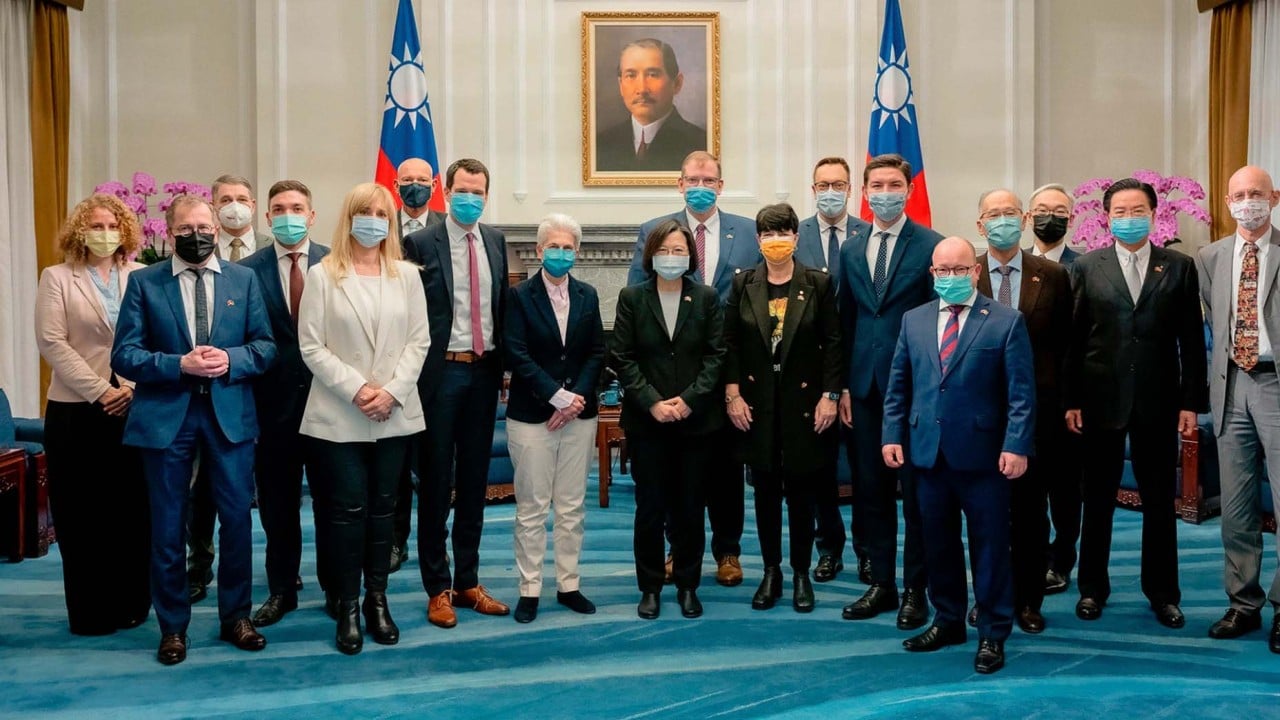in the meantime all going well, leading up from the clean-sweep 2022 mayoral elections towards the electioneering for presidency 2024
am figuring de facto peaceful reunification quite possible within window of 2026 / 2032 and thus settling the civil war between ROC and PRC
the photographic optics of he Pelosi visit did not and does not play well in Taiwan province of ROC, and visiting Germans does not make it better as they are bogged down in Ukraines
I daily scan Taiwan popular press, and it appears the Taiwan Chinese are quite different than the Ukrainians
scmp.com
Beijing sees window of opportunity in Taiwan with opposition KMT visit: analyst
- Amid ‘positive changes’, mainland authorities step up efforts to reach out to island’s opposition politicians
- KMT delegation to Beijing signals ‘a change in public opinion in Taiwan’, observer says

Amber Wang in Beijing
Published: 6:00am, 12 Feb, 2023

Amid ‘positive changes’, mainland authorities have stepped up efforts to reach out to Taiwan’s opposition politicians. Photo: Reuters
Sensing a possible shift in public opinion among some Taiwanese, Beijing has ramped up efforts to reach out to different parties on the island in a bid to grow support by offering beneficial policies, according to analysts.
The years-long influence strategy by mainland authorities had seen a renewed push after the local elections last year, they said.
“Positive changes have taken place in the international situation and the situation on the island, and the factors that hindered exchanges in the past are tending to ease,” said Zheng Jian, a member of the National Society of Taiwan Studies, a think tank based in Beijing.
On Thursday in Beijing, Song Tao, the newly appointed head of the Taiwan Affairs Office, met the vice-chairman of Taiwan’s main opposition Kuomintang (KMT) party, Andrew Hsia, who is leading a five-member KMT delegation on a 10-day visit to the mainland.
Both men said they hope to maintain peace in the Taiwan Strait, amid speculation that a war could break out as early as next year.
The meeting came days after Song met Hung Hsiu-chu, the KMT’s former chairwoman, in the coastal city of Xiamen, which lies across the strait from Taiwan.
“That [Taiwanese political figures] dare to visit represents a change in public opinion in Taiwan,” Zheng said.
The KMT, which supports a one-China principle, scored a major victory after the mayoral and county elections in November, polls that are regarded as a bellwether ahead of the presidential election early next year.
Relations between Beijing and Taipei have been strained since Tsai Ing-wen from the pro-independence Democratic Progressive Party was elected president in 2016 and refused to endorse the one-China principle.
But events since last August have changed the direction of political winds, according to Zheng.
“Taiwanese realised the risk of war after [former US House speaker Nancy] Pelosi’s visit and showed their attitudes in their local elections,” he said.
“After extreme provocations, the United States found that it had to walk back,” he said, adding the fundamental nature of tension in the strait remained unchanged.
“In the Bali summit, the US showed a positive attitude on Taiwan issues and [US Secretary of State Antony] Blinken sought to put up guardrails [on ties with Beijing].”
During the November summit in Indonesia, Chinese President Xi Jinping told US President Joe Biden that Taiwan was a “red line” that should not be crossed. After the talks, Biden said he did not believe China had imminent plans to invade Taiwan.

In another sign of a thaw in tensions, Beijing last month resumed imports from more than 60 Taiwanese food companies that it had barred, and indicated that it would continue to restore transport links between Taiwan and the mainland, which had been suspended because of Covid-19 restrictions and political tension.
“The KMT’s visit led by Hsia carries a lot of implications for economic and livelihood issues,” Zheng said.
“They are seizing the chance to promote peaceful development of cross-strait relations, which is good for Taiwan … Taiwan people can choose the side that can create benefits.”
Zhu Songling, a professor at the Institute of Taiwan Studies at Beijing Union University, said the KMT visit reflected most Taiwanese, who sought peace.
The visit “could help ease tensions in the strait”, Zhu said, adding that the face-to-face communication between the Communist Party and the KMT would help build understanding for both sides.
“Although there might not be consensus, there might be sparks during the conversations that could help start a huge blaze in the future,” Zhu said, citing an icebreaking visit to the mainland in 2005 by former KMT leader Lien Chan, which set the stage for the development of cross-strait relations years later when the KMT were voted into power. |







